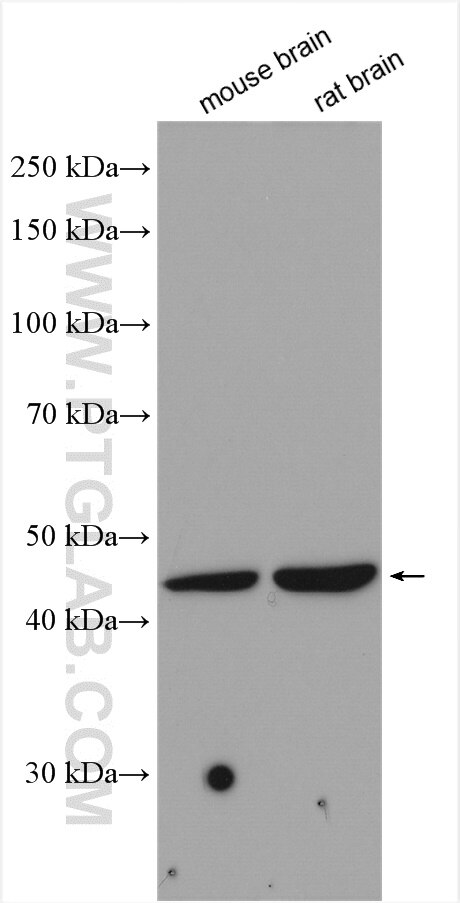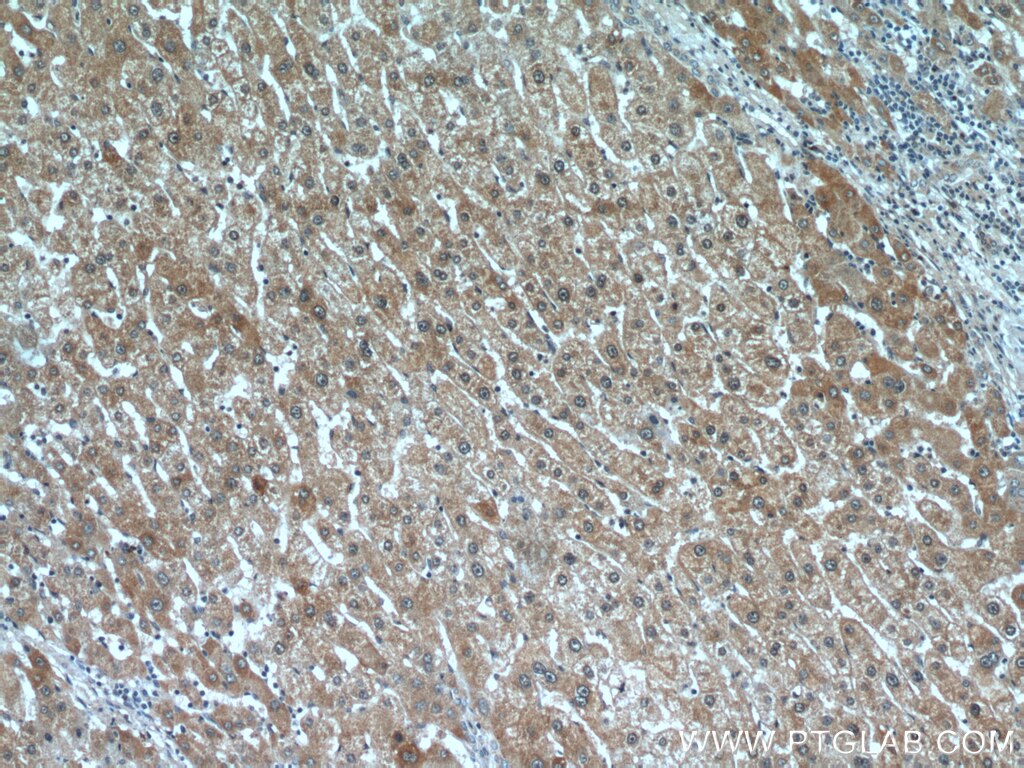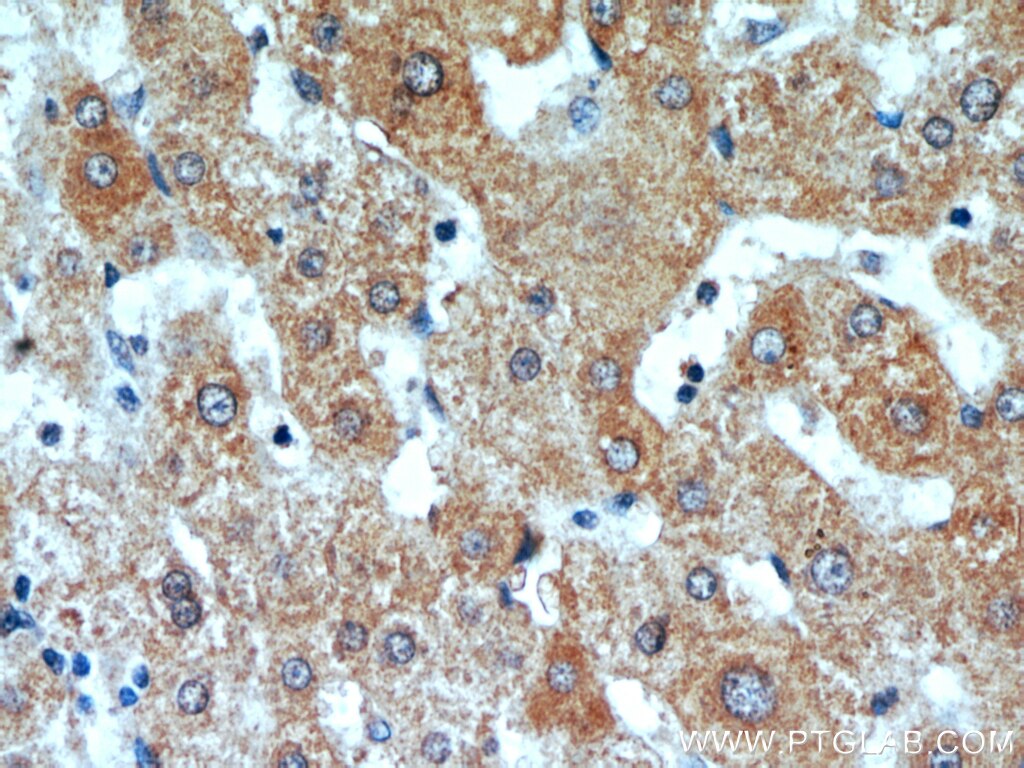Tested Applications
| Positive WB detected in | mouse brain tissue, rat brain tissue |
| Positive IHC detected in | human liver cancer tissue Note: suggested antigen retrieval with TE buffer pH 9.0; (*) Alternatively, antigen retrieval may be performed with citrate buffer pH 6.0 |
Recommended dilution
| Application | Dilution |
|---|---|
| Western Blot (WB) | WB : 1:500-1:2000 |
| Immunohistochemistry (IHC) | IHC : 1:20-1:200 |
| It is recommended that this reagent should be titrated in each testing system to obtain optimal results. | |
| Sample-dependent, Check data in validation data gallery. | |
Published Applications
| WB | See 1 publications below |
Product Information
20602-1-AP targets C16orf70 in WB, IHC, ELISA applications and shows reactivity with human, mouse, rat samples.
| Tested Reactivity | human, mouse, rat |
| Cited Reactivity | human |
| Host / Isotype | Rabbit / IgG |
| Class | Polyclonal |
| Type | Antibody |
| Immunogen |
CatNo: Ag14576 Product name: Recombinant human C16orf70 protein Source: e coli.-derived, PGEX-4T Tag: GST Domain: 73-422 aa of BC004556 Sequence: NQRLKVIEVCDLTKVKLKYCGVHFNSQAIAPTIEQIDQSFGATHPGVYNSAEQLFHLNFRGLSFSFQLDSWTEAPKYEPNFAHGLASLQIPHGATVKRMYIYSGNSLQDTKAPMMPLSCFLGNVYAESVDVLRDGTGPAGLRLRLLAAGCGPGLLADAKMRVFERSVYFGDSCQDVLSMLGSPHKVFYKSEDKMKIHSPSPHKQVPSKCNDYFFNYFTLGVDILFDANTHKVKKFVLHTNYPGHYNFNIYHRCEFKIPLAIKKENADGQTETCTTYSKWDNIQELLGHPVEKPVVLHRSSSPNNTNPFGSTFCFGLQRMIFEVMQNNHIASVTLYGPPRPGSHLRTAELP Predict reactive species |
| Full Name | chromosome 16 open reading frame 70 |
| Calculated Molecular Weight | 422 aa, 48 kDa |
| Observed Molecular Weight | 48 kDa |
| GenBank Accession Number | BC004556 |
| Gene Symbol | C16orf70 |
| Gene ID (NCBI) | 80262 |
| RRID | AB_10694825 |
| Conjugate | Unconjugated |
| Form | Liquid |
| Purification Method | Antigen affinity purification |
| UNIPROT ID | Q9BSU1 |
| Storage Buffer | PBS with 0.02% sodium azide and 50% glycerol, pH 7.3. |
| Storage Conditions | Store at -20°C. Stable for one year after shipment. Aliquoting is unnecessary for -20oC storage. 20ul sizes contain 0.1% BSA. |
Background Information
The function of C20orf30 has not been widely studied, and is yet to be fully elucidated. The MW of this protein is 48 kDa, and our antibody specially recognises the 48 kDa protein.
Protocols
| Product Specific Protocols | |
|---|---|
| IHC protocol for C16orf70 antibody 20602-1-AP | Download protocol |
| WB protocol for C16orf70 antibody 20602-1-AP | Download protocol |
| Standard Protocols | |
|---|---|
| Click here to view our Standard Protocols |








